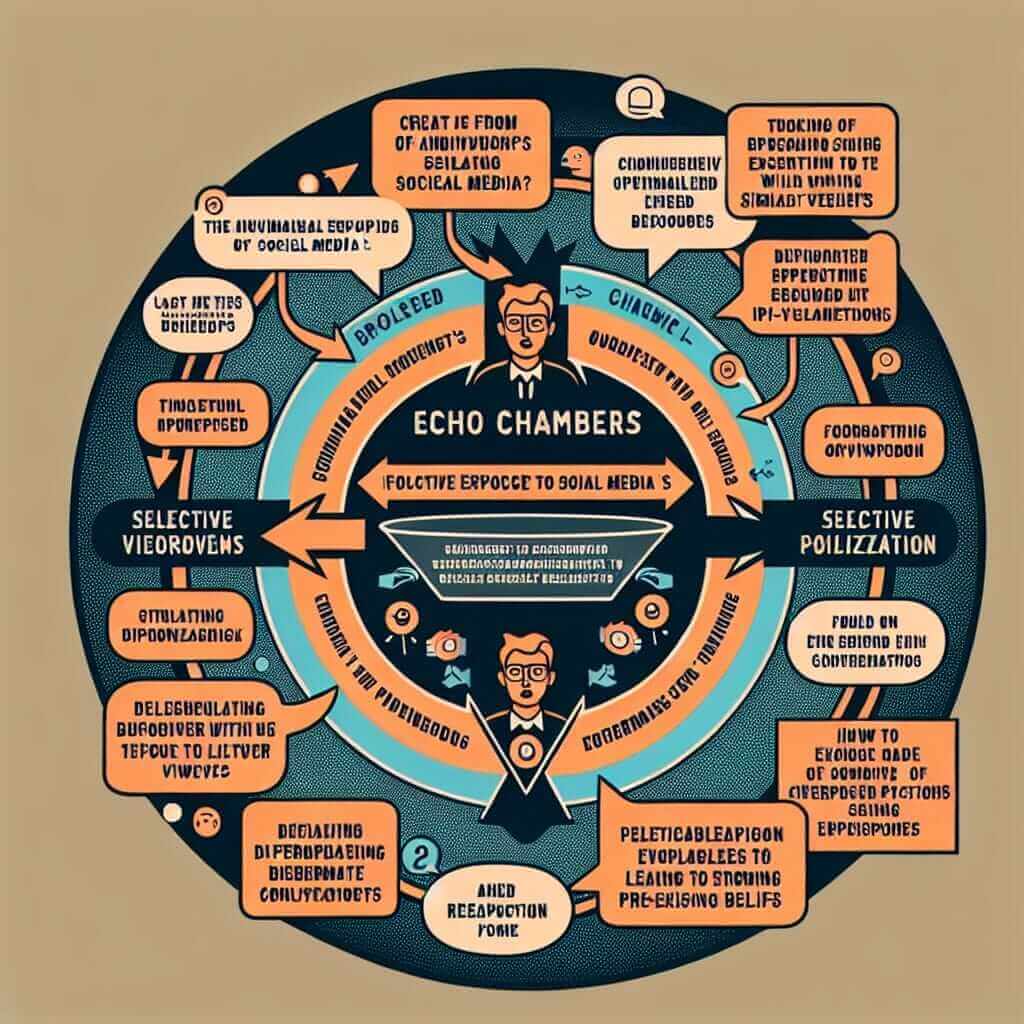The IELTS Reading section is designed to assess a variety of reading skills, which include understanding the main ideas, details, opinions, and attitudes expressed in texts. Topics covered in the Reading section often reflect current events and social phenomena.
Over the past decade, the topic of social media’s effects on political polarization has become increasingly relevant. A combination of empirical studies and anecdotal evidence suggests that social media can both create and exacerbate political divides. Given its significance, this topic is likely to appear in the IELTS Reading section in the future.
In this article, we will provide a detailed Reading practice test centered on the theme “What are the effects of social media on political polarization?” Along with the practice test, we will offer comprehensive answer keys, vocabulary, grammar points, and common pitfalls.
Reading Practice Test
Passage
The Effects of Social Media on Political Polarization
Social media has become an integral part of modern life, offering unparalleled access to information and a platform for social interaction. While these platforms offer numerous benefits, they also have a significant impact on political polarization.
One key issue is the way algorithms prioritize content. Social media platforms use complex algorithms to determine what content users see. These algorithms often prioritize content that generates strong reactions, which frequently means emotionally charged or controversial posts. This can lead to the creation of so-called “echo chambers,” where users primarily see content that aligns with their existing beliefs, reinforcing their views and increasing polarization.
Moreover, the speed at which information spreads on social media can amplify polarizing effects. Information—accurate or not—can go viral within hours, making it challenging to correct misinformation or provide balanced viewpoints. This rapid dissemination of information often results in knee-jerk reactions and entrenched positions, contributing further to political divides.
Another aspect to consider is the role of social media in shaping public opinion and behavior. Studies have shown that exposure to polarized content can result in more extreme political views and behaviors. This is particularly evident during election cycles when targeted advertising and misinformation campaigns are most prevalent.
However, social media is not solely to blame for political polarization. Traditional media, economic inequality, and long-standing social issues also play crucial roles. Nonetheless, the influence of social media on political polarization cannot be underestimated and requires careful regulation and public awareness to mitigate its effects.

Questions
Multiple Choice
-
What is a primary factor that social media platforms use to determine what content users see?
a. User’s search history
b. Emotional engagement
c. Time spent online
d. Political preferences -
What is one consequence of the prioritization algorithms used by social media platforms?
a. Greater diversity of opinions
b. Faster internet speeds
c. Creation of echo chambers
d. Improved mental health
True/False/Not Given
- The primary reason social media spreads information quickly is due to its algorithms.
- Traditional media has no role in political polarization.
- Social media only contributes to political polarization during election cycles.
Summary Completion
Fill in the blanks with NO MORE THAN TWO WORDS from the passage.
Social media algorithms often prioritize __ that generates strong reactions, leading to the creation of __. The rapid spread of __ also contributes to entrenched political views.
Answer Keys
Multiple Choice
- b. Emotional engagement
- c. Creation of echo chambers
True/False/Not Given
- True
- False
- False
Summary Completion
- content
- echo chambers
- information
Common Pitfalls
- Overlooking Keywords: One frequent error is missing key terms in the question and passage. Always underline or highlight keywords to ensure you focus on relevant information.
- Misinterpreting Information: Sometimes, students misinterpret the information given. It’s essential to read the question first and then locate the pertinent details in the passage.
- Time Management: Many students spend too much time on one question. Practice pacing yourself to ensure you have enough time to answer all questions.
Vocabulary
Here are some challenging words from the passage:
- Algorithm (n.) /ˈælɡəˌrɪðəm/: A step-by-step procedure for calculations
- Amplify (v.) /ˈæmplɪfaɪ/: To increase the size, effect, or amount of something
- Misinformation (n.) /ˌmɪ.sɪn.fəˈmeɪ.ʃən/: False or inaccurate information
- Entrenched (adj.) /ɪnˈtrɛntʃt/: Firmly established and difficult to change
- Prevalent (adj.) /ˈprɛvələnt/: Widespread in a particular area or at a particular time
Grammar Focus
In this passage, pay attention to the use of complex sentences and passive voice.
- Complex Sentences: “While these platforms offer numerous benefits, they also have a significant impact on political polarization.”
- Passive Voice: “Information—accurate or not—can go viral within hours.”
Passive Voice Structure:
Form: Subject + auxiliary verb (be) + past participle + (by agent)
Example: “This rapid dissemination of information is often influenced by various factors.”
Conclusion
Practicing with reading passages and understanding the effective strategies to tackle them can significantly improve your IELTS Reading score. Always be aware of the main ideas, supporting details, and the organization of texts. Use the vocabulary and grammatical structures you learn in your practice to enhance your skills further.
Keep practicing, and you will see improvement over time. Remember, consistency is key to mastering the IELTS Reading section!
For further reading, check out our related article on The Impact of Social Media on Democratic Processes to deepen your understanding and broaden your vocabulary on interconnected topics.